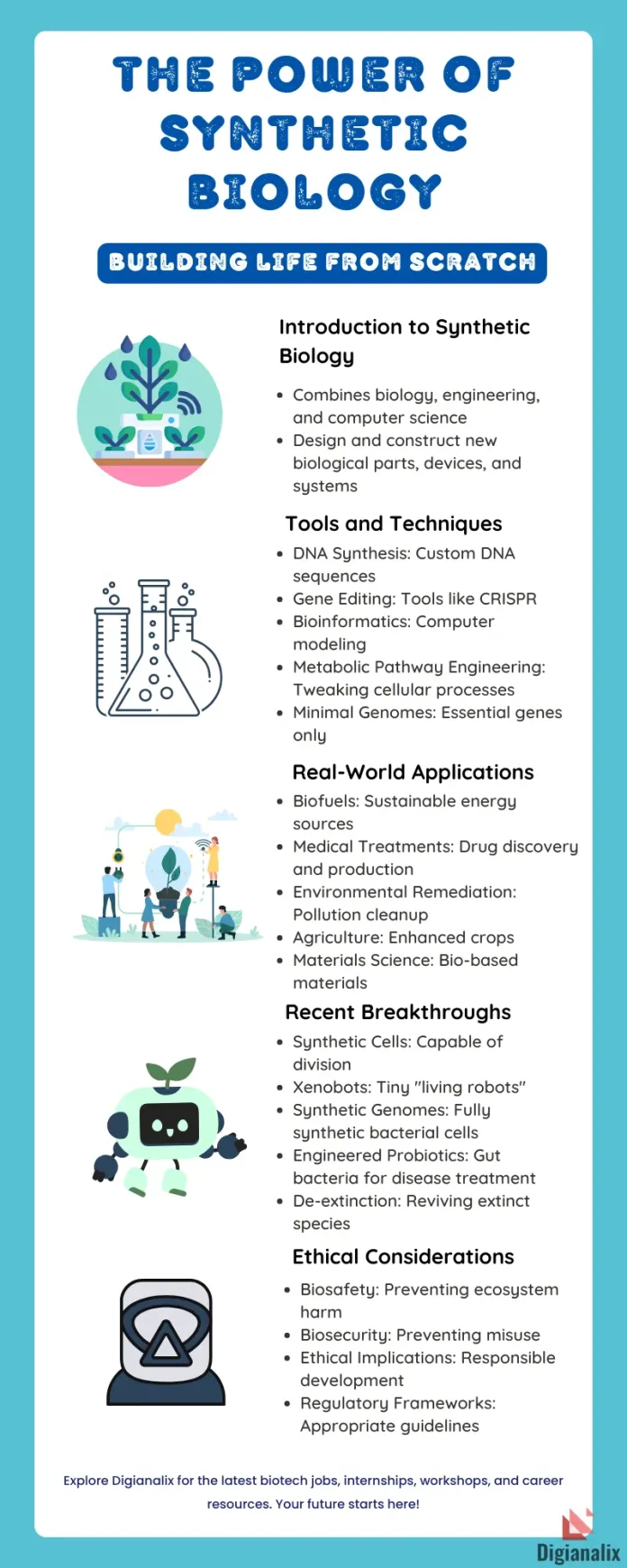Hey biotech enthusiasts! 👋 Ready to explore the fascinating world of synthetic biology? Let’s dive into this cutting-edge field where science meets engineering to redesign and create new biological systems!
🧬 What’s the buzz about synthetic biology?
Synthetic biology is a revolutionary approach that combines biology, engineering, and computer science to design and construct new biological parts, devices, and systems. It’s like playing with nature’s LEGO blocks, but on a molecular level!
Key aspects of synthetic biology:
- Bioengineering: Modifying existing organisms or creating new ones
- Genetic circuits: Designing and implementing new genetic pathways
- Metabolic engineering: Optimizing cellular processes for desired outputs
- Synthetic genomics: Creating artificial genomes from scratch
🔬 How does synthetic biology work?
Synthetic biologists use a variety of tools and techniques to achieve their goals:
- DNA synthesis: Creating custom DNA sequences in the lab
- Gene editing: Using tools like CRISPR to modify genetic code
- Bioinformatics: Employing computer modeling to design biological systems
- Metabolic pathway engineering: Tweaking cellular processes for specific outcomes
- Minimal genomes: Stripping down organisms to their essential genes
🚀 Real-world applications of synthetic biology
Synthetic biology is not just cool science; it’s solving real-world problems:
- Biofuels: Engineered microbes producing sustainable energy sources
- Medical treatments: Synthetic biology approaches to drug discovery and production
- Environmental remediation: Designed organisms for pollution cleanup
- Agriculture: Crops with enhanced nutritional value or resistance to pests
- Materials science: Bio-based materials with novel properties
💡 Exciting developments in synthetic biology
Let’s look at some recent breakthroughs:
- Synthetic cells: Scientists have created cell-like structures capable of division
- Xenobots: Researchers have developed tiny “living robots” from frog cells
- Synthetic genomes: The creation of bacterial cells with fully synthetic genomes
- Engineered probiotics: Gut bacteria designed to detect and treat diseases
- De-extinction: Efforts to revive extinct species using synthetic biology techniques
🤔 Ethical considerations and future challenges
As with any powerful technology, synthetic biology raises important questions:
- Biosafety: Ensuring engineered organisms don’t harm ecosystems
- Biosecurity: Preventing misuse of synthetic biology tools
- Ethical implications: Balancing innovation with responsible development
- Regulatory frameworks: Developing appropriate guidelines for research and applications
The future of synthetic biology holds immense potential, from personalized medicine to sustainable materials production. As the field advances, collaboration between scientists, policymakers, and the public will be crucial to navigate the challenges and harness the benefits.
What do you think about synthetic biology? Are you excited about its potential, or do you have concerns? Share your thoughts in the comments below!
Stay updated on the latest in synthetic biology by subscribing to our site and following us on social media. Let’s keep the conversation going!




